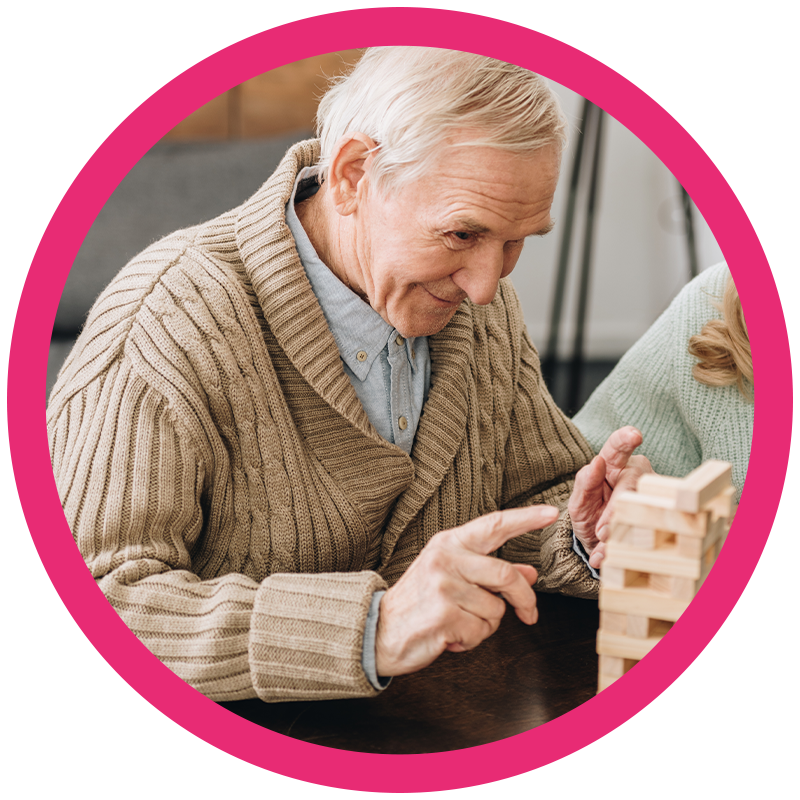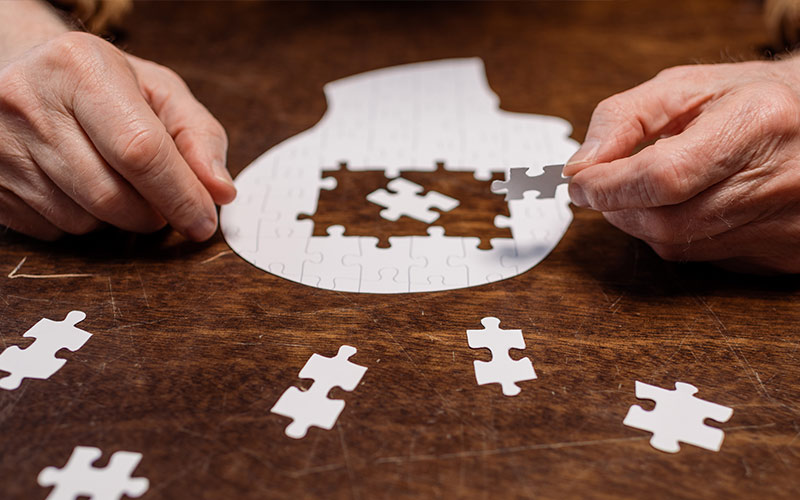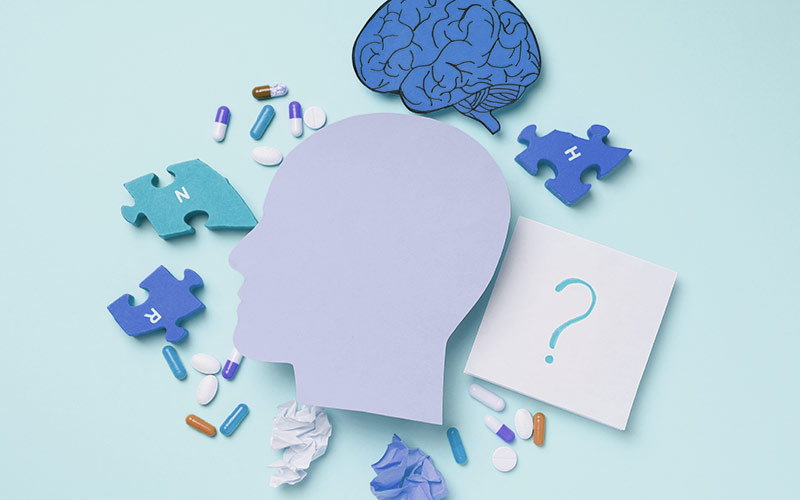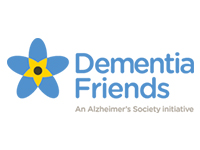
About Dementia
“On An Adventure With Dementia”
Hearing the word dementia can be as scary as hearing the word cancer!
Understanding the journey of someone living with a diagnosis is invaluable and can make a real difference to everyone around them. Having all the information and the right people to support you and your loved one is even more important.
What Is Dementia
The word Dementia is an umbrella term; much like cancer. Dementia covers a wide range of specific medical conditions. These groups of symptoms are all associated with an ongoing decline of the brains ability to function.
There are many different types of Dementia, and each one affects the individuals living with the diagnosis differently.
Dementia is extremely common, and the latest figures show there are more than 850,000 people in the UK who have a diagnosis of dementia.

The Types Of Dementia
There are over 200 types of dementia, we have listed and briefly described the most common below to help people understand although every individual is unique people will all behave differently.
Alzheimer’s
This is the most common type of dementia in the UK which is why it’s the most well-known. It accounts for 60-80% of dementia cases.
This is a progressive disease, and the most common symptoms include:
• Confusion, disorientation and getting lost in familiar places
• Poor concentration
• Difficulty recognising people and objects
• Difficulty planning or making decisions
• Low moods or anxiety
• Personality changes, such as becoming aggressive, demanding, and suspicious of others
• Difficulty performing everyday tasks such as cooking, paying bills and self-care
• Difficulty remembering recent events
Vascular Dementia
This is the second most common type of dementia. It is estimated that 150,000 people in the UK live with Vascular Dementia and symptoms can start suddenly or begin slowly over time. It is caused by problems in the supply of blood to the brain, commonly due to strokes or TIA’s.
This causes damage to the brain.
Symptoms are very similar to Alzheimer’s with some additional points of note:
- Difficulty walking and keeping balance
- Slowness of thought
- Bladder control
- Reading and writing difficulties
Lewy Bodies Dementia
This is a progressive condition that affects movement and motor control. This is the ability to control voluntary movements to carry out tasks such as walking, using cutlery, and getting dressed.
Symptoms of people living with Lewy Bodies may have:
- Hallucinations including seeing, hearing, or smelling things that are not there
- Prone to falls
- Slow movement, stiff limbs, and tremors
- Disturbed sleep often with violent movements and shouting out
- Fainting spells, unsteadiness, and falls
- Confusion or sleeping
- Problems with understanding, thinking memory and judgement like Alzheimer’s
Frontotemporal Dementia
This is not a common type of dementia; it causes problems with behaviour and language. This type of dementia affects the frontal lobes of the brain, which controls behaviour, learning, personality, and emotions. It is a dementia that is more common in people aged 45 to 65 years rather than in the older age groups, like the other dementia.
This dementia is sometimes confused with depression, stress, anxiety, psychosis, or OCD, which makes it very difficult to diagnose.
Mixed dementia
As with other illnesses and diseases it is possible to get symptoms and diagnosis spanning two types of dementia at the same time.
The most common combination is Alzheimer’s disease and vascular dementia. At least 1 in every 10 people with dementia is diagnosed as having more than one type.
Symptoms shown will vary dependent on the dementia types, but it is common for one to be be more prevalent and this type will be referred to as the predominant type.
Parkinson’s Disease with Dementia
It’s estimated that about 1 in 500 people are affected by Parkinson’s disease with Dementia. About one fifth of people diagnosed are under 40 years old but it is more common in the over 50’s.
The 3 main symptoms are:
- Involuntary shaking of particular parts of the body
- Slow movements
- Stiff and inflexible muscles
There are a wide range of other physical and psychological symptoms, when dementia is also present which presents like other dementias such as Alzheimer’s.
Stages Of Dementia
There are many different types of dementia and all of them are progressive. As with many diseases, the symptoms can vary, very differently but will generally be relatively mild at first but will worsen over time. It is important that we recognise that everyone’s dementia journey is different. There are often early signs, but these are missed and put down to age or an individual’s lifestyle, like alcohol.
There are three main stages of Dementia:
Early stage
Middle stage
Late stage
These can be broken down to a 7-stage journey which can help to see where an individual may be. It’s important to remember that everyone is different and not every case follows every stage, this is just a guide.
STAGE 1 -2
No cognitive decline – an individual has no memory loss and is mentally healthy. A person will appear normal and can cover up lapses. Very mild cognitive decline – an individual has normal forgetfulness linked with age or lifestyle. The person forgets certain things but can function normally otherwise.
STAGE 3
Mild cognitive decline – forgetfulness becomes more frequent than normal and shows signs of mental decline that is noticeable to others. This could show with difficulties at work or situations. This is often the stage when the person becomes anxious as people start to notice symptoms.
STAGE 4
Moderate cognitive decline – this is when a person begins to forget recent events, has trouble socially and can begin to withdraw from family and friends. At this stage being able to count can be affected. They often find travel difficult, and they show signs of not being able to manage their own affairs.
STAGE 5
Moderately severe cognitive decline – there is major memory loss, and they need assistance with daily activities. Tasks like getting dressed will be difficult and assistance will need to be given.
STAGE 6
Severe cognitive decline – the individual will need considerable assistance with daily activities. The ability to remember names of close family is affected. They will often become incontinent and will need help with eating and drinking. They will be disorientated to time and places.
STAGE 7
Very severe cognitive decline – the individual will have limited ability to communicate and requires assistance with almost all activities. They will need full support for personal care and nutritional and hydrations needs.

Our Philosophy On Dementia
At By Your Side, we understand that when you have met one person with dementia you’ve met one person with dementia. By this we mean that everyone lives with dementia in a different way. We are all unique and so is how we are affected by dementia.
We pride ourselves on supporting those with the diagnosis and their families and friends. It can be an extremely isolating illness and often people around the individual are unsure how to support them or what to say or do.
By Your Side have been supporting our community and the individuals with a diagnosis of dementia for many years. We support these individuals and their families to join them on their journey and embed our philosophy that “you’re on an adventure with dementia” and support everyone to live as well as is possible with their dementia diagnosis.
We will be there for you to ensure that you can smile and be yourself on this journey and be there when your journey hits a new direction. Whatever happens we promise we will be by your side from the start until the end of your dementia journey.
Need Help?
Do you have concerns that someone you know, or love may be showing signs of Dementia? Have you just been diagnosed and want to talk to someone about everything?
Have you been supporting someone and need someone to talk to or to help?
If the answer to any of these questions is yes, then get in touch with our team. We offer free consultation and a free assessment. We will support you with information, signposting to services and can provide care and support to you and your loved ones.







